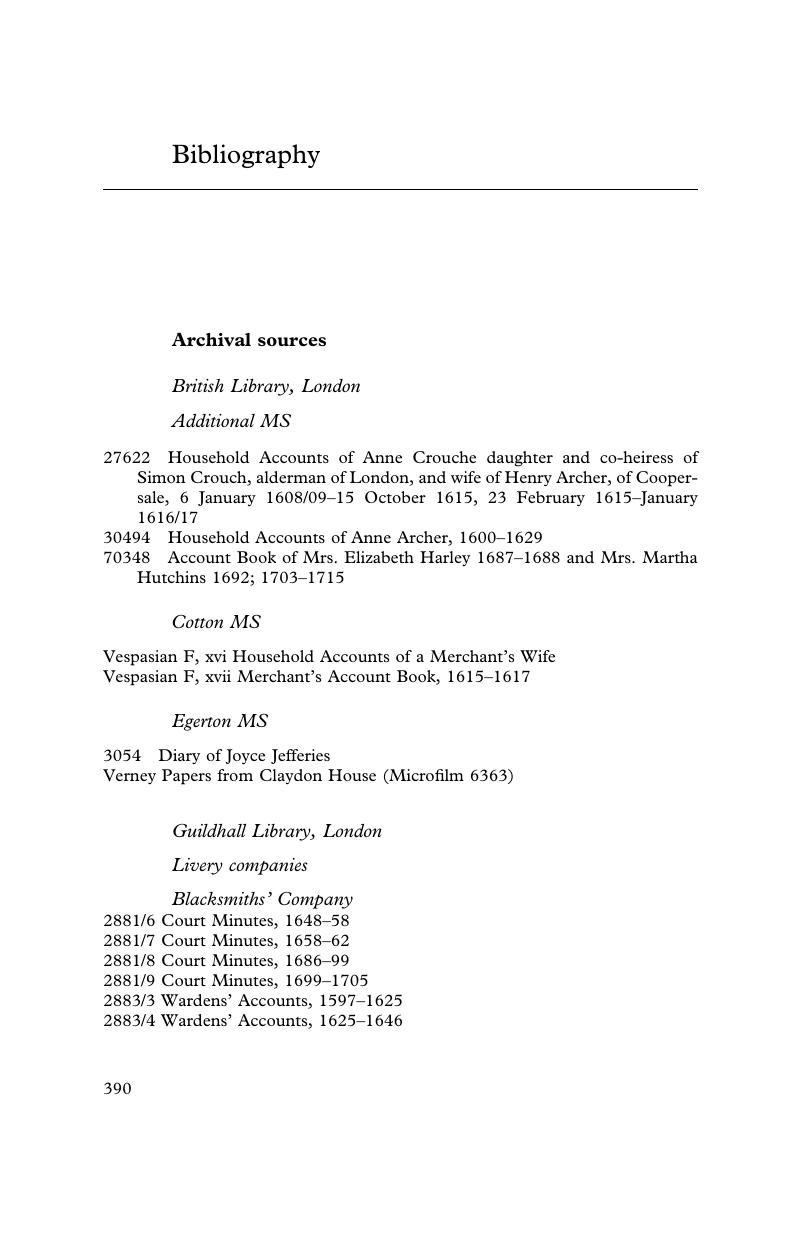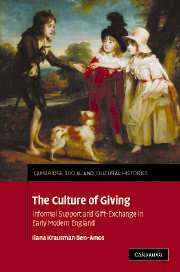Bibliography
Published online by Cambridge University Press: 04 May 2010
Summary

- Type
- Chapter
- Information
- The Culture of GivingInformal Support and Gift-Exchange in Early Modern England, pp. 390 - 417Publisher: Cambridge University PressPrint publication year: 2008



